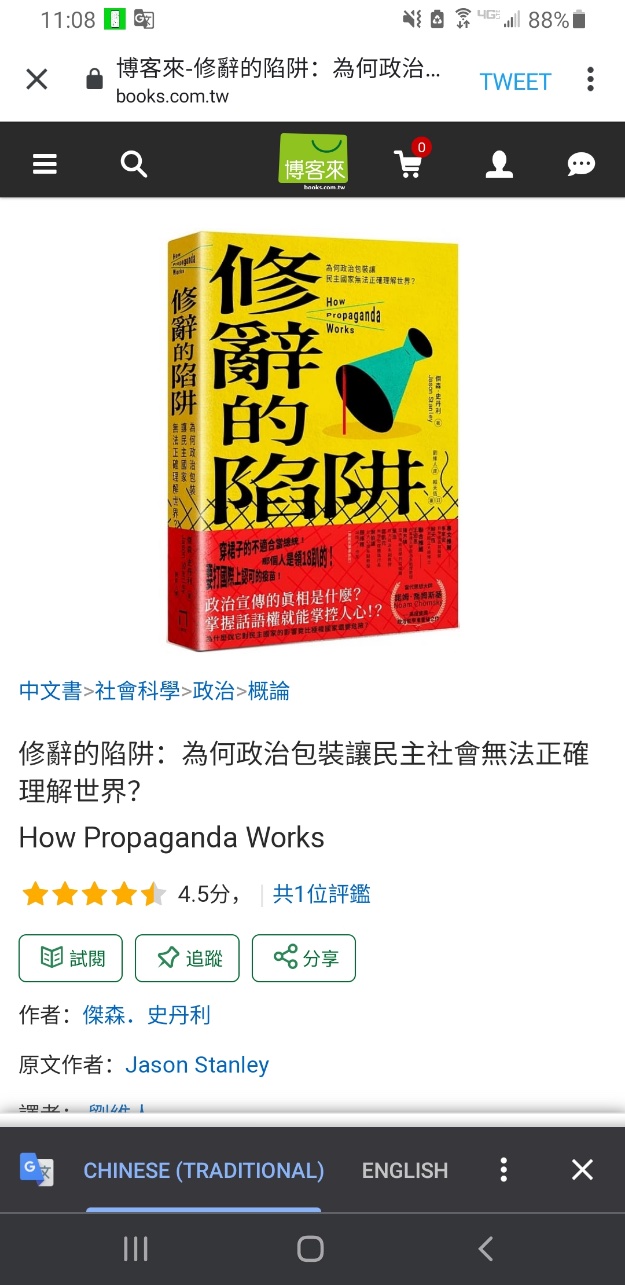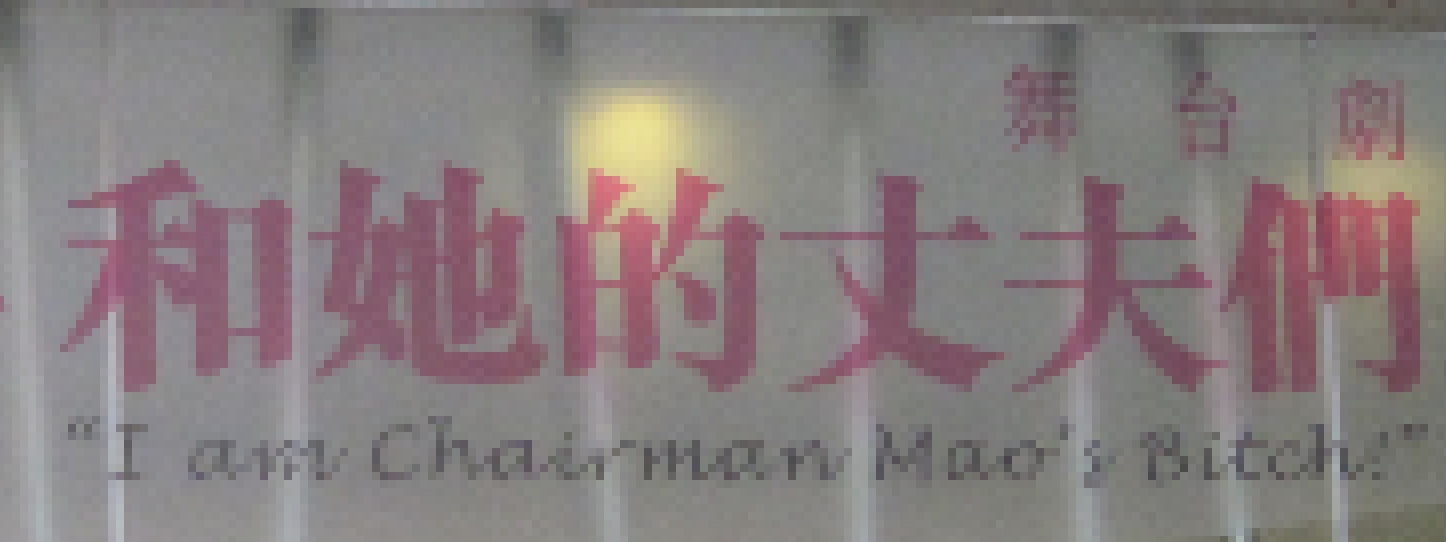Archive for Translation
Sino-Japanese aesthetics and a new mode of translation
[This is a guest post by Ashley Liu]
The following is a new way to translate classical Chinese poetry into Japanese. Recently, some Chinese shows about premodern China have become popular in Japan. The Chinese songs in the shows–written in classical Chinese poetry style–are translated into Japanese and sung by Japanese singers. I am fascinated by how the translation works. As you can see below, the Japanese version has waka aesthetics but keeps the 7-syllable format of Chinese poetry. The Japanese version seems to reduce the original meaning by a lot, but if you read it carefully, the way it captures the core meaning is ingenious, e.g., 風中憶當初 (remembering the past in the wind) = 時渡る風 (wind that crosses through time / brings back time).
Read the rest of this entry »
Sino-French language lessons
Chinese signs from Quora. Since they are rather lengthy and come with French explanations, I will depart from my usual Language Log treatment of providing Romanizations, transcriptions, and translations for the Chinese. Instead, I will only give English translations (based mainly on Google translations of the French, with slight modifications).
En raison de la population nombreuse et du nombre insuffisant d'agents de police, les Chinois ont développé une culture unique en matière de panneaux d'avertissement intimidants :
Panneau de signalisation : "Veuillez conduire en toute sécurité, il n'y a pas d'hôpital à proximité".

Due to the large population and insufficient number of police officers, the Chinese have developed a unique culture of intimidating warning signs.
Warning sign: "Please drive safely, there is no hospital nearby".
Read the rest of this entry »
Magical Penis Wine
Victor Steinbok reports:
This made the rounds on Reddit a few times. The screenshot of a 2019 Reddit thread popped up on my FB feed today. It might even come in white and red 😈

Source: NV Debao Winery Magical Penis Wine
Read the rest of this entry »
Chinese, English, and Japanese toilet instructions
Sol Jung, a former Penn undergrad, took this photograph more than a decade ago, but I'm only now getting around to posting on it.
There's quite a story behind the photograph and why it took me so long to write this blog post about it. I will explain below.
Read the rest of this entry »
Tortured phrases
Article by Holly Else in Nature (8/5/21):
"‘Tortured phrases’ give away fabricated research papers
Analysis reveals that strange turns of phrase may indicate foul play in science"
Here are the beginning and a few other selected portions of the article:
In April 2021, a series of strange phrases in journal articles piqued the interest of a group of computer scientists. The researchers could not understand why researchers would use the terms ‘counterfeit consciousness’, ‘profound neural organization’ and ‘colossal information’ in place of the more widely recognized terms ‘artificial intelligence’, ‘deep neural network’ and ‘big data’.
Further investigation revealed that these strange terms — which they dub “tortured phrases” — are probably the result of automated translation or software that attempts to disguise plagiarism. And they seem to be rife in computer-science papers.
Research-integrity sleuths say that Cabanac* and his colleagues have uncovered a new type of fabricated research paper, and that their work, posted in a preprint on arXiv on 12 July1, might expose only the tip of the iceberg when it comes to the literature affected.
[*VHM: Guillaume Cabanac, a computer scientist at the University of Toulouse, France]
Read the rest of this entry »
Fully vaccinated or not in English, French, and Chinese
Sign in Vancouver International Airport:

Segregated line-ups for vaccinated and unvaccinated international arrivals at Vancouver International Airport. Photo by Andrew Aziz. (Source)
Read the rest of this entry »
The Rhetoric Trap
Interesting Chinese translation of the title of Yale philosopher Jason Stanley's book, How Propaganda Works:
Read the rest of this entry »
The importance of translation for learning Literary Sinitic
After reading "Bad poetry, bad translation" (6/18/21), Zihan Guo wrote:
Thank you for sharing this post.
While reading it, its comments, and all the selected readings related to it, I could not help but feel that translating classical Chinese poetry is the way to make sure one really understands it. Back in middle school and high school in China, my teachers would teach poetry and prose through paraphrasing, making them coherent narratives. However, adding things is as detrimental as its opposite. It was not until college that I started to truly appreciate classical Chinese poetry, through producing English translations myself, struggling with its syntactic concision and lack of precision, squeezing meanings from diction and speculating moods from imagery.
Read the rest of this entry »
Grimms' Kinder- und Hausmärchen in Hoklo
Good news!
"German classic released in Hoklo"
FIRST IN A SERIES: The aim was to translate ‘Grimms’ Fairy Tales’ as closely as possible to the original while giving play to Hoklo’s characteristics, the translator said
By Kayleigh Madjar / Staff writer, Taipei Times (6/21/21)
Some of our favorite things: languages, topolects, translations, folktales.
National Cheng Kung University linguists on Wednesday released a bilingual version of Grimms’ Fairy Tales in German and Hoklo (commonly known as Taiwanese), complete with voice recordings accessible via QR code.
Grimms’ Fairy Tales, a German collection of about 300 stories published in the 19th century, has been translated into more than 100 languages worldwide.
Hoklo is now joining the list thanks to a project spearheaded by Tan Le-kun (陳麗君), an associate professor in the university’s Department of Taiwanese Literature.
Read the rest of this entry »
Good poetry, good translation
[This is a guest post by Denis Mair]
River Snow
Liu Zongyuan (773-819)
Over ranged mountains, no birds are seen in flight
On every pathway, human traces are being erased
In a solitary boat, an old man in rough-weather gear
Is out on the cold river, fishing in the snow
{Here the mountains are just a backdrop in a scene where falling snow makes things indistinct. Although precipitous mountains can "cut off" the flight of birds, I don't think this line is emphasizing the impassibility of mountains to birds. That would be a tangent. And to say that the birds are "receding in flight" would be over-particularizing the image, choosing only the birds that are flying away from the viewer. Surely, there could also be birds flying towards or lateral to the viewer. The important thing is that the snow is making it hard to see any birds flying, or they don't want to be out flying in the snow.}
Read the rest of this entry »
Bad poetry, bad translation
UC Santa Barbara’s Department of East Asian Languages and Cultural Studies just held “The Worst Chinese Poetry: A Virtual Roundtable" on June 1 and 2. It followed on “The Worst Chinese Poetry: A Virtual Workshop,” held in April. Both events were organized by Thomas Mazanec, Xiaorong Li, and Hangping Xu.
Mazanec expects the roundtable to produce an anthology, “The Worst Chinese Poetry: A Critical Anthology,” which will feature selected bad poems and commentary that explains the issues that the poems raise about literary, social and political history, he said.
Source: "Lyrical Losers,'The Worst Chinese Poetry: A Virtual Roundtable' will take a critical look at failures of the genre", By Jim Logan, The Current (UCSB) (Friday, May 28, 2021)
Read the rest of this entry »
"I am Chairman Mao's Bitch"
Jeff DeMarco saw this sign in the window of a building in Hong Kong’s Sheung Wan district in 2009:
Read the rest of this entry »




